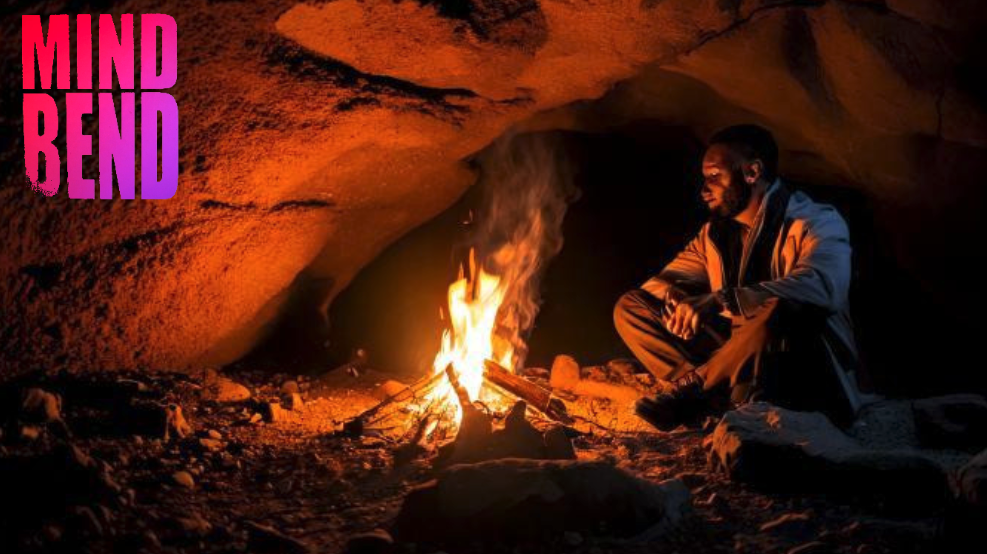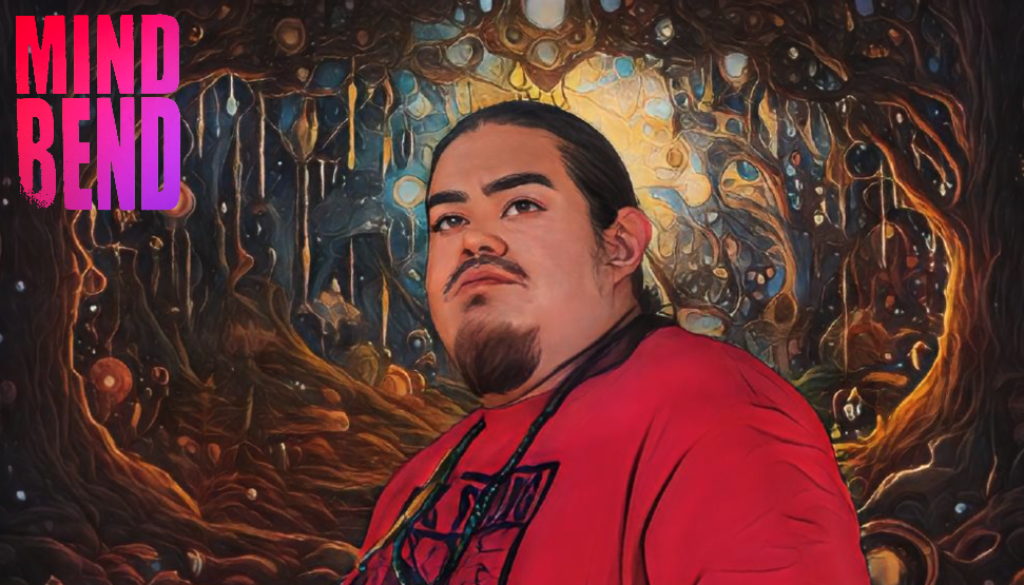Walking the Walk: Shane Norte on Psychedelics, Native Wisdom, and the Heart of Healing
In the vast and ever growing tapestry that constitutes the psychedelic community, certain voices stand out—not for their volume, but for their resonance. Shane Norte, founder of The Church of the People for Creator and Mother Earth, speaks with a clarity that cuts through the noise. His work, centered on the convergence of Native traditions and psychedelic healing, is as much a reclamation as it is a redefinition. During our recent discussion for the MINDBEND podcast, Shane posed a question that lingers long after the conversation ends: Is the psychedelic community truly about healing, or has it become another venue for escapism?
Shane’s church, The Church of the People for Creator and Mother Earth, established in 2019, operates on a unique model: everything is free. Ceremonies, sweat lodges, and gatherings are held without charge, a deliberate choice reflecting his commitment to accessibility and authenticity. For Shane, this isn’t just a rejection of the monetized frameworks that often dominate the psychedelic industry—it’s a return to the roots of community, where healing and connection are the currency.
He’s quick to point out the contrasts between his approach and what he sees in mainstream psychedelic spaces. “A lot of people stack substances, they commodify the experience, and they lose the essence of what these medicines are about,” Shane explains. For his ceremonies, the focus is on psilocybin, tobacco, and cannabis, used intentionally and with reverence.
The Dichotomy of Healing and Partying
Throughout the interview, Shane speaks to a trend worthy of our examination: the dichotomy between ceremonial use and recreational indulgence. “When I hear people talk about psychedelics, it often feels like a party,” he says. “But if you pull back the curtain, not everything is as positive as it seems.”
Shane’s critique isn’t rooted in disdain but in frustration. He recounts stories of individuals seeking healing only to encounter systems that prioritize profit over people. Integration sessions, coaching certifications, and expensive retreats often leave people feeling more alienated than aligned. “If you’re charging thousands of dollars for healing, who are you really serving?” Shane asks pointedly.
His church takes a different approach, rooted in the Native values of humility, community, and respect for the land. Every ceremony begins with grounding rituals: burning sage, cedar, and tobacco; connecting to the fire and water. “These elements are older than any technology in your house,” Shane says. “They carry wisdom that reconnects us to what matters.”

Native Voices and Voicing Uncomfortable Truths
We spoke about the role of Native voices in the “mainstream” psychedelic movement. While Indigenous cultures are often referenced as the spiritual backbone of modern psychedelic practices, Shane observes that genuine inclusion remains rare, and at its most worrisome, it’s the result of intentional marginalization.
“There’s Native racism in the psychedelic community,” he states bluntly. “People love the idea of Indigenous wisdom but don’t want to engage with the realities of Indigenous people.” Shane recounted instances where his presence in certain spaces was met with discomfort or dismissal. Yet, he remains steadfast in his mission: to bridge the gap between Indigenous traditions and a broader audience hungry for truth and connection.
All the while, he also emphasizes the importance of addressing the systemic issues underlying these dynamics. From the historical erasure of Native peoples to the commodification of their practices, Shane calls for deeper accountability. “You can’t build a movement on stolen land and expect it to thrive without honoring the people who have stewarded that land,” he says.
Healing as a Community Act
At the heart of Shane’s work is the belief that healing is a collective endeavor. This ethos is evident in the structure of his ceremonies, where participants are encouraged to lean into vulnerability and community support and the resources best gleaned from community.. “Ceremony puts you in the present moment,” Shane explains. “It’s not about tomorrow or yesterday—it’s about right now, together.”
He also stresses the importance of creating spaces for uncomfortable conversations. Whether it’s discussing racism within the community or questioning the ethics of psychedelic commercialization, Shane believes that progress requires honesty. “People don’t want to have these dialogs because they’re uncomfortable,” he notes. “But without them, we’re just bypassing the real issues.” It’s my hope that at MINDBEND we can somehow help host exchanges that while uncomfortable, could lead to greater mutual understanding and benefit for all participants. The vision for such a container is still unclear, and I’m open to suggestions, sincerely.

Walking the Walk: Heeding the Call
Shane’s message to the psychedelic community is clear: it’s time to walk the walk. Healing isn’t a product or a performance—it’s a practice rooted in authenticity, accountability, and respect. He invites those in the space to reflect on their intentions and to consider whether their actions align with their words.
“People come to psychedelics looking for help,” Shane says. “But if we’re not providing genuine support, what are we doing? This work isn’t about looking cool or making money—it’s about reconnecting to what’s real.”
As the interview draws to a close, Shane offers a vision of what’s possible when these principles are embraced. A world where people honor the land and each other. A world where healing isn’t a privilege but a shared responsibility. A world where the psychedelic movement lives up to its promise.
For Shane Norte and his church, this vision isn’t a distant ideal—it’s a reality they’re building, one ceremony at a time.




